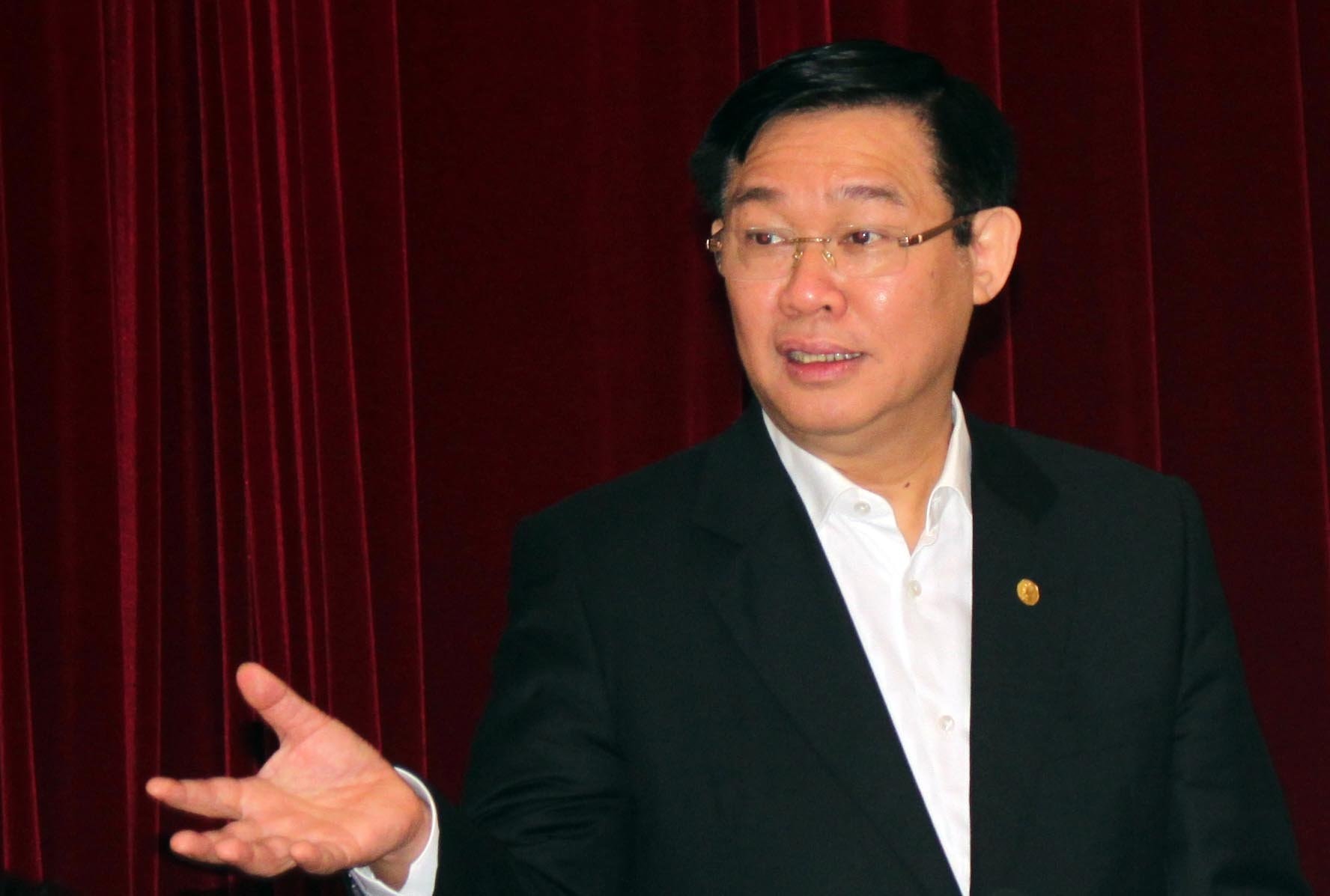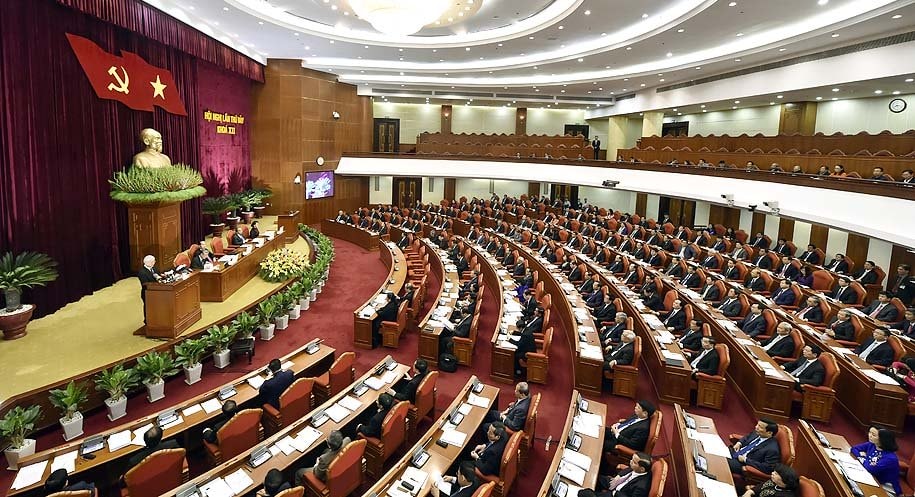2021: Civil servant and officer salaries will increase sharply
The new salary policy will be applied uniformly to cadres, civil servants, public employees, and armed forces from 2021, with the lowest level equal to the average lowest salary in the business sector.
Talking about the project on reforming salary policy for cadres, civil servants, public employees, armed forces and workers in enterprises presented at the 7th Central Conference, Deputy Prime Minister Vuong Dinh Hue, Head of the Central Steering Committee on reforming salary policy, social insurance and incentives for people with meritorious services, said that we must have a correct viewpoint on salary policy, suitable to the new context.
|
| Deputy Prime Minister Vuong Dinh Hue, Head of the Central Steering Committee on reforming wage policies, social insurance and incentives for people with meritorious services. Photo: Thanh Chung |
In which, determining salary must be the main income to ensure the life of employees and their families; paying the right salary is an investment in human resource development, creating motivation to improve productivity and work efficiency.
Paying salaries to officials, civil servants and armed forces is based on job positions, titles and leadership positions, in accordance with State resources, ensuring a reasonable correlation with salaries in the labor market.
At the same time, implement a suitable reward and treatment regime, creating motivation to improve work quality and efficiency, public ethics, professional ethics, contributing to cleaning up and improving the effectiveness and efficiency of the political system.
Salary increase every 2-3 years
Regarding the public sector, the Deputy Prime Minister said that the salary policy implemented according to the roadmap from 2018 to 2020 still applies the old one, adjusting the basic salary increase according to the National Assembly's resolution.
The new salary policy will be applied uniformly to cadres, civil servants, public employees, and armed forces in the entire political system from 2021, with the lowest level equal to the average lowest salary in the business sector.
From 2003 to present: 11 times of adjusting the general minimum wage, from 210,000 VND to 1,300,000 VND/month, an increase of 519%, higher than the increase in the consumer price index in the same period of 208.58%.
Every 2-3 years, raise salary levels in accordance with the consumer price index (CPI), economic growth and the capacity of the state budget.
By 2025, the lowest salary of cadres, civil servants and public employees will be higher than the average lowest salary in the business sector. By 2030, this level will be equal to or higher than the lowest salary in the highest region of the business sector.
The Deputy Prime Minister also informed that the design of the new salary and bonus structure includes: basic salary, allowances; bonuses and the issuance of a new salary system according to job position, title and leadership position.
In which, there is 1 salary table for positions of leaders from the central to communal levels and 1 salary table for expertise and profession according to civil servant ranks and professional titles applied generally to civil servants who do not hold leadership positions. Each civil servant rank and professional title has many salary levels as at present. As for the armed forces, there are 3 different salary tables.
It is noteworthy that when converting the old salary mechanism to the new salary mechanism, it is guaranteed that it is not lower than the current salary.
|
| The Salary Reform Project will be discussed at the 7th Central Conference. Photo: Nhat Bac |
The state does not directly intervene in enterprise wages.
For the business sector, the Deputy Prime Minister said that wages are the price of labor, formed on the basis of agreements between employees and employers according to market rules under State management.
Accordingly, the State stipulates the minimum wage as the lowest floor to protect vulnerable workers, and at the same time is one of the bases for negotiating wages and regulating the labor market.
The adjustment to increase the regional minimum wage based on the recommendation of the National Wage Council will be implemented by the State but will not directly intervene in the wage policy of enterprises from 2021.
The management of labor and wages in state-owned enterprises will follow the method of assigning wage costs linked to the production and business targets of enterprises until 2025, moving towards assigning production and business targets of enterprises by 2030.
According to Deputy Prime Minister Vuong Dinh Hue, after the project was approved at the 7th Central Conference, the Party and State's functional agencies will develop and issue documents regulating the new salary regime when guiding the implementation of transferring old salaries to new salaries, ensuring that they are not lower than current salaries.
7 Sources to Increase Salary
- Sources from economic restructuring associated with growth model innovation.
- Restructuring state budget revenue.
- Annually, spend about 50% of the estimated revenue increase and 70% of the actual revenue increase of the local budget, and about 40% of the central budget revenue increase on salary reform.
- Save 10% of the annual increase in regular expenditure estimates.
- The remaining annual source of salary policy reform is used to implement reforms for the following years.
- Restructuring state budget expenditures in conjunction with salary reform, restructuring expenditures in a number of public service sectors in conjunction with adjusting prices and fees for public service services. Abolishing non-salary expenditures, salary fund allocations, non-salary allowances (cars, housing, medical examination and treatment...).
- Convert from fees to prices for public service, associated with appropriate support policies for the poor and policy beneficiaries.


